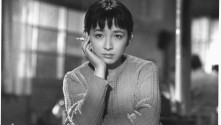
Woman of Tokyo
A Mother Should Be Loved
Screening on Film
One of the director’s most powerful films, Woman of Tokyo tells the story of a young woman who supports her student brother by working as a translator by day and a prostitute by night. Discovering the source of her illicit income, the brother is driven to a desperate act. Mizoguchi comes to mind often in the film, especially in the devastating sequence in which the prostitute confronts the brutal hypocrisy of her brother. Rediscovered in the early 1980s, Woman of Tokyo was acclaimed for its “a subtle riot of discordant formal devices. . . . and breathtaking wrench of perspective, from individual tragedy to matter-of-fact social breakdown.” Ozu never made another film quite like this one. Neither has anyone else.
Often analyzed despite its missing first and final reels, A Mother Should Be Loved centers on the aftermath of the death of the patriarch of the Kajiwara clan. Eight years after the father’s passing, one of his sons discovers that he is actually the issue of his father’s first, long-dead wife and that his stepmother has been guarding the secret for many years. The ensuing turmoil reveals several other blots on the family’s supposedly “stainless” reputation. For Ozu, whose own father died during the production, the film’s theme of the decline of masculine authority may have had a deeply felt personal resonance.











































